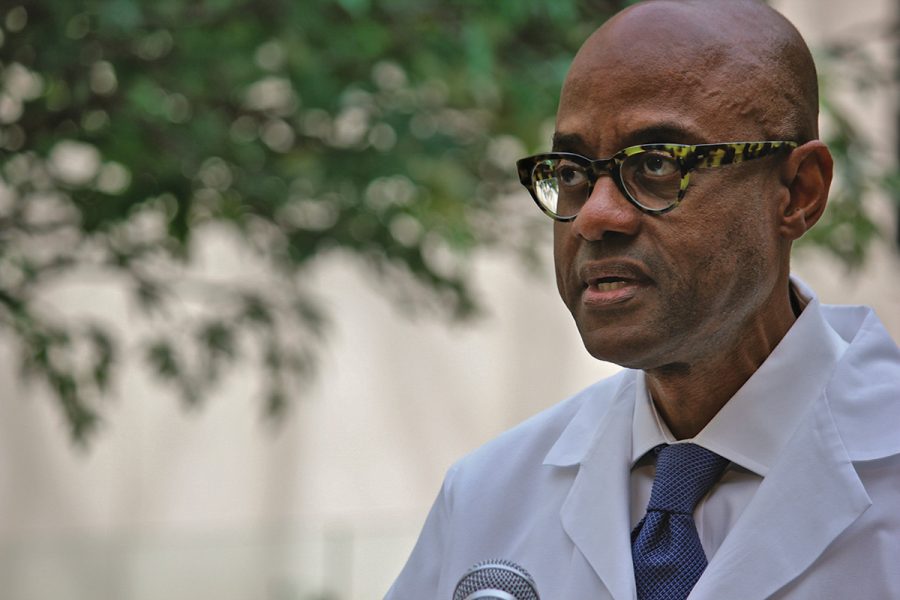Beaumont Health research identifies autism biomarkers
The study on biomarkers for predicting autism was led by a geneticist and chair of obstetrics and gynecology for Beaumont Health and OUWB.
In a recent study done by Beaumont Health, a research team was able to identify key biomarkers for predicting autism in newborns.
Using archived blood spots from past patients, the team was able to extract and compare the DNA from 14 different confirmed cases of autism to 10 control cases. According to Science Direct, the team’s goal “was to investigate the epigenetic basis of classic autism and identify early biomarkers.”
Autism, otherwise known as autism spectrum disorder (ASD), is a developmental disability that impacts 1 in 59 children in the U.S, according to the Center for Disease Control (CDC). Research has shown that early intervention treatment services can improve a child’s development.
The collaborative study was led by Dr. Ray Bahado-Singh, a geneticist and chair of obstetrics and gynecology for Beaumont Health and the Oakland University William Beaumont School of Medicine. The team also consisted of researchers from Albion College and the University of Nebraska Medical Center.
In comparing the two groups of DNA, the team looked to see which ones they could identify as having or not having the disorder.
“Could we, using artificial intelligence, accurately detect autism?” Bahado-Singh said. “For the cases that have autism, what percentage of times would we accurately identify, looking at the test results, that this was a case of autism? And also, for the cases that don’t have autism, what percentage of the time could we accurately say that this child does not have autism?”
The team was able to identify cases of autism with 97.5% accuracy. They also had similarly high accuracy in determining cases without autism.
In addition, the team was able to identify specific genes, some of which have already been attributed to the disorder, that are epigenetically altered in the cases of autism they studied. According to the National Cancer Institute, an epigenetic alteration is a heritable change which doesn’t affect the DNA, but changes gene expression.
According to Bahado-Singh, the question now is whether this research is generalizable. He said larger studies will need to be done in the future looking into different populations of people. For example, future studies can be done to find if there are different causes of autism in different races of people.
The study only focused on one subgroup of the autistic spectrum and did not look into the different classifications of autism, such as aspergers. Bahado-Singh said it would be interesting to see whether the same changes in a different subgroup and if it is possible to predict how they perform. This is another goal to look into for further studies.
However, Bahado-Singh said, even though the research is preliminary, it’s a very promising start for both accurate and early diagnosis.
“We have very promising initial results,” he said. “At the very least, what we’re anticipating is it opens the possibility of earlier diagnosis and, with a specific intervention, improving outcomes.”






